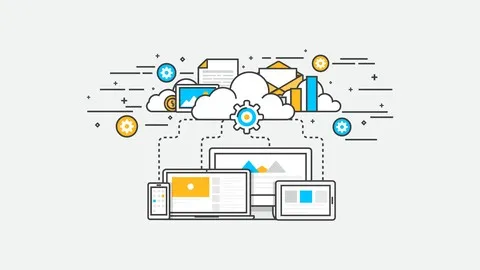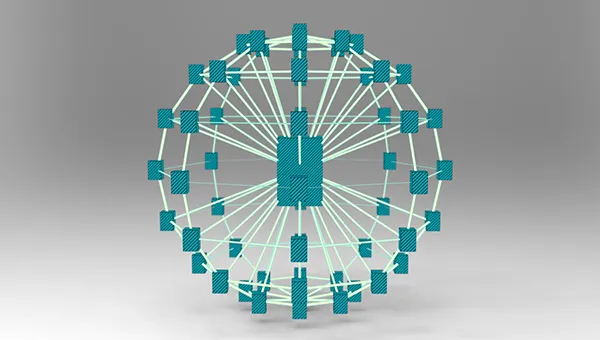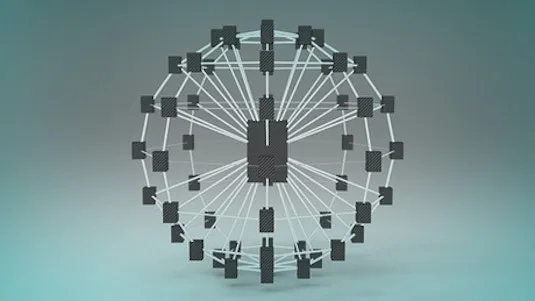
Cloud Computing Fundamentals 
Discover the fundamentals of Cloud Computing Fundamentals ▼
ADVERTISEMENT
Course Feature
![]() Cost:
Cost:
Free Trial
![]() Provider:
Provider:
QuickStart
![]() Certificate:
Certificate:
No Information
![]() Language:
Language:
English
![]() Start Date:
Start Date:
Self Paced
Course Overview
❗The content presented here is sourced directly from QuickStart platform. For comprehensive course details, including enrollment information, simply click on the 'Go to class' link on our website.
Updated in [May 19th, 2023]
This course provides an overview of Cloud Computing fundamentals. Upon completion, students will have a fundamental understanding of what Cloud Computing is, the different Cloud segments, and the various Cloud deployment models. Students will gain an understanding of the benefits and challenges of Cloud Computing, and the different types of Cloud services available. Additionally, students will learn about the different Cloud service providers and the various Cloud architectures.
[Applications]
Upon completion of this course, students will be able to apply their knowledge of Cloud Computing fundamentals to their own projects. They will be able to identify the different Cloud segments and deployment models, and understand the advantages and disadvantages of each. Additionally, they will be able to identify the best Cloud solution for their specific needs. Furthermore, they will be able to develop strategies for deploying and managing Cloud applications.
[Career Paths]
1. Cloud Architect: Cloud Architects are responsible for designing, building, and managing cloud computing systems. They must have a deep understanding of cloud computing technologies, such as virtualization, storage, networking, and security. As cloud computing continues to grow in popularity, the demand for Cloud Architects is expected to increase.
2. Cloud Developer: Cloud Developers are responsible for developing applications and services that run on cloud computing platforms. They must have a strong understanding of programming languages, such as Java, Python, and C#, as well as cloud computing technologies. As cloud computing continues to become more popular, the demand for Cloud Developers is expected to increase.
3. Cloud Security Engineer: Cloud Security Engineers are responsible for ensuring the security of cloud computing systems. They must have a deep understanding of security protocols, such as encryption, authentication, and authorization. As cloud computing continues to become more popular, the demand for Cloud Security Engineers is expected to increase.
4. Cloud Solutions Architect: Cloud Solutions Architects are responsible for designing and implementing cloud computing solutions. They must have a deep understanding of cloud computing technologies, such as virtualization, storage, networking, and security. As cloud computing continues to become more popular, the demand for Cloud Solutions Architects is expected to increase.
[Education Paths]
1. Bachelor of Science in Cloud Computing: This degree program provides students with a comprehensive understanding of cloud computing technologies, including cloud architecture, cloud security, cloud storage, and cloud networking. Students will also learn about the development of cloud-based applications and services, as well as the management of cloud-based systems. This degree program is ideal for those looking to pursue a career in cloud computing, as it provides the necessary skills and knowledge to succeed in the field.
2. Master of Science in Cloud Computing: This degree program provides students with an advanced understanding of cloud computing technologies, including cloud architecture, cloud security, cloud storage, and cloud networking. Students will also learn about the development of cloud-based applications and services, as well as the management of cloud-based systems. This degree program is ideal for those looking to pursue a career in cloud computing, as it provides the necessary skills and knowledge to succeed in the field.
3. Doctor of Philosophy in Cloud Computing: This degree program provides students with an in-depth understanding of cloud computing technologies, including cloud architecture, cloud security, cloud storage, and cloud networking. Students will also learn about the development of cloud-based applications and services, as well as the management of cloud-based systems. This degree program is ideal for those looking to pursue a career in cloud computing, as it provides the necessary skills and knowledge to succeed in the field.
4. Certificate in Cloud Computing: This certificate program provides students with a basic understanding of cloud computing technologies, including cloud architecture, cloud security, cloud storage, and cloud networking. Students will also learn about the development of cloud-based applications and services, as well as the management of cloud-based systems. This certificate program is ideal for those looking to pursue a career in cloud computing, as it provides the necessary skills and knowledge to succeed in the field.
The development of cloud computing is rapidly evolving, and the demand for professionals with cloud computing skills is increasing. As such, these degree paths provide learners with the necessary skills and knowledge to pursue a career in cloud computing. Additionally, these degree paths provide learners with the opportunity to stay up-to-date with the latest cloud computing technologies and trends.
Course Provider

Provider QuickStart's Stats at AZClass
Discussion and Reviews
0.0 (Based on 0 reviews)
Explore Similar Online Courses

Digital Marketing: Storytelling in the New Communication Landscape

Graphic Design - An Overview of the Field

Python for Informatics: Exploring Information

Social Network Analysis

Introduction to Systematic Review and Meta-Analysis

The Analytics Edge

DCO042 - Python For Informatics

Causal Diagrams: Draw Your Assumptions Before Your Conclusions

Whole genome sequencing of bacterial genomes - tools and applications

Cloud Computing Concepts Part 1

Introduction to Cloud Identity

Cloud Computing Concepts: Part 2
 Related Categories
Related Categories
Quiz
 Submitted Sucessfully
Submitted Sucessfully
1. Which of the following is not a Cloud Deployment Model?
2. Which of the following is not a Cloud Segment?
3. What is the main benefit of Cloud Computing?


Start your review of Cloud Computing Fundamentals